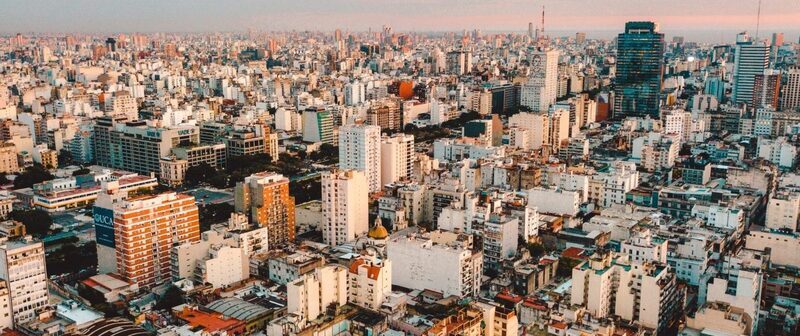
5 Steps to Build an Effective CSR Strategy
In today’s business landscape, Corporate Social Responsibility (CSR) has evolved from being a “nice-to-have” to ...

The World Bank (WB) approved to extend a 100-million-dollar loan to help Argentina’s capital develop three underdeserved neighborhoods in line with the Sustainable Development Goals.
The Metropolitan Buenos Aires Urban Transformation Project supports the implementation of the provincial government’s Plan for the Socio-Urban Integration of Precarious Villas and Settlements. Specifically, it will finance interventions in Villa Itatí and Villa Azul in the Municipality of Quilmes and in the Carlos Gardel neighborhood of Morón Municipality.
The project will finance comprehensive investments in basic infrastructure, housing, public spaces and community equipment, as well as activities to strengthen social capital and opportunities for social, labor and productive development. The project will also support activities for institutional strengthening and capacity-building to replicate these interventions in other underserved neighborhoods.
“We’re bringing the best of the State to the most humble neighborhoods to remove the intermediaries, combat drug-traffickers, and so that the residents have a better quality of life,” said María Eugenia Vidal, governor of Buenos Aires Province. “We’re not only bringing security, we’re also investing in infrastructure in a way that has never been done before and installing permanent offices so that residents have access to basic services.”
In Argentina, there are approximately 4,416 informal settlements with a total population of 4 million. Of these, 1,020 are in Metropolitan Buenos Aires, where one of every four households has no access to running water, and one of every two lacks sanitation services.
“This project seeks to generate opportunities and improve the inclusion of the most disadvantaged families, who are in a situation of social and environment vulnerability on a daily basis,” said Jesko Hentschel, World Bank director for Argentina, Paraguay and Uruguay.
The socioeconomic situation in Villa Itatí and Villa Azul is fragile: about 83 percent of the population has unmet basic needs and the unemployment rate stands at 14 percent – nearly double the average for Metropolitan Buenos Aires. There are no sewage systems or access to drinking water, and electric power connections are informal and precarious. With respect to the Carlos Gardel neighborhood, over 67 percent of households are considered poor or indigent in terms of monthly income.
This new initiative builds on the activities of the Metropolitan Buenos Aires Urban Transformation Project, which supports the City of Buenos Aires in the urbanization of the Padre Carlos Mugica neighborhood -also known as Barrio 31. Basic infrastructure works including paved streets, water, sanitation and drainage systems, public lighting are nearly completed. Progress was also made in the construction of new homes and inhabitants currently living in unsafe conditions underneath the highway will be relocated to these homes.
The project will receive additional financing through a fixed-spread loan of dlrs 100 million for Buenos Aires Province. The loan will mature in 28 years and has a grace period of six years.

Great news! Thanks for sharing!